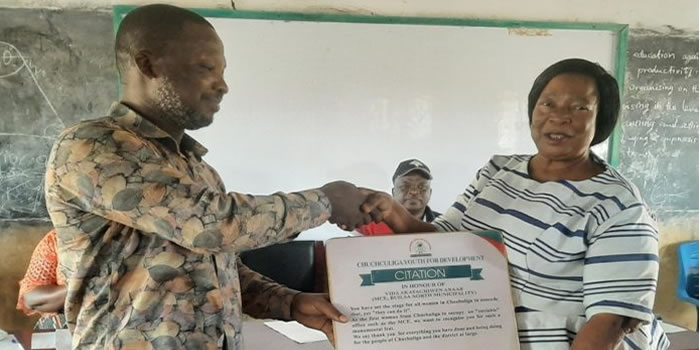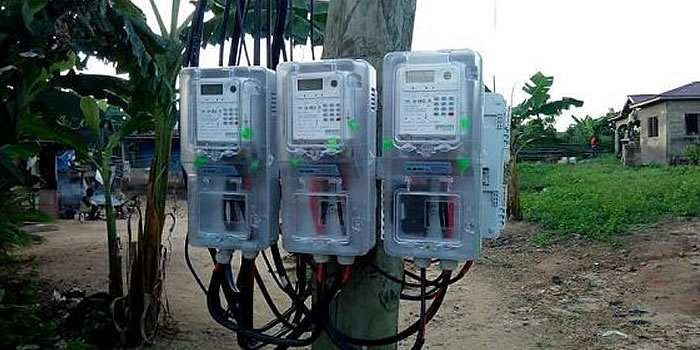

SOCIAL
BUILSA N: NCCE educates Bilinsa Community on ARAP
The Municipal Directorate of the National Commission for Civic Education [NCCE] in the Builsa North Municipality of the Upper East Region, has concluded a month-long public education on the Accountability, Rule of law and Anti-Corruption Programme [ARAP].

Date Created : 4/3/2019 6:31:22 AM : Story Author : Peter Atogewe Wedam/Ghanadistricts.com
The ARAP intervention is a European Union [EU]-sponsored anti-corruption programme being implemented in collaboration with the Government of Ghana with the NCCE as the lead-implementing agency.
The education campaigns were mainly carried out in the Bilinsa community of the Municipality during which, selected staff of the NCCE and staff from partner agencies including the Ghana Police Service and the Commission on Human Rights and Administrative Justice [CHRAJ], took terms to sensitize community members on the need for all and sundry to help fight the menace of corruption in the district and in Ghana, as a whole.
Acting Municipality Director of the NCCE, Mr. Jeffery Adda who briefed the media at the climax of the ARAP campaigns, revealed that a similar sensitisation outreach was done in the district in 2018 covering the Wiaga, Siniensi and Chuchuliga communities. He disclosed that the objective of the ARAP intervention is to promote good governance in the country by reducing corruption and improving accountability while encouraging citizens to comply with the rule of law.
He added that, the programme formed part of a nationwide sensitisation exercise being undertaken by sister district offices of the NCCE. He said as part of the strategies used in the campaigns to derive maximum impact, his office undertook dusk-to-dawn announcements in target areas while market days were also targeted and used as the masses often congregated at such places.
Mr. Adda also disclosed that identifiable groups, churches and mosques as well as community durbars and other social gatherings were capitalised on to spread the ideals of the ARAP intervention. On one such engagement, Mr. Adda noted that, corruption causes under-development that leads to increased rate of poverty in the country as monies and other resources meant for the public good, were often syphoned and kept by one person or by a small group of acquaintances.
The Acting NCCE Director also entreated the community members to discard whatever fears they may have and to report corruption cases to statutory bodies such as Legal Aid, the Economic and Organised Crime Office [EOCO], the CHRAJ as well as the Ghana Police Service for prompt and appropriate action to be taken to right these wrongs in society. He noted that such brave acts by the citizenry to report on corruption and abuse-of-office cases, will add more fuel to the anti-corruption fight and also, deter people who may harbour such tendencies.
In his remarks, the Municipal Police Commander, Supt. Samuel Ntosoh who is also a member of the campaign team, encouraged the public to see corruption as a national problem which needs all hands on deck in order to be dealt with effectively. He gave the assurance that, though a few bad-nuts in the service have often given the police bad news in the media, the Ghana Police Service remained an integral partner in the anti-corruption efforts and was still committed in helping to nib corruption in the bud.
The Commander urged all stakeholders including state institutions and private citizens to always endeavour to furnish the Police with credible and reliable information as well as tip-offs. This he noted, would enable them to hasten investigations relating to corruption as this will in turn, speed up the prosecution of cases.
A CHRAJ Representative on the team, Mr. Akanbong also touched on the whistle-blower’s Act and said it is an important tool in the fight against corruption stressing that, members of the public should feel free to report cases as the Act had adequate protection for them. He
added that, the objective of the Act was also to empower citizens to expose corruption and wrongdoing in both public and private sector
institutions.






 facebook
facebook
 X
X
 Youtube
Youtube
 instagram
instagram
 +233 593 831 280
+233 593 831 280 0800 430 430
0800 430 430 GPS: GE-231-4383
GPS: GE-231-4383 info@ghanadistricts.com
info@ghanadistricts.com Box GP1044, Accra, Ghana
Box GP1044, Accra, Ghana